- Home
- Hugh Howey
Sand: Omnibus Edition
Sand: Omnibus Edition Read online
Sand
by Hugh Howey
To those who dare to help.
Part 1:
The Belt of the Buried Gods
1 • The Valley of Dunes
Starlight guided them through the valley of dunes and into the northern wastes. A dozen men walked single file, kers tied around their necks and pulled up over their noses and mouths, leather creaking and scabbards clacking. The route was circuitous, but a direct line meant summiting the crumbling sand and braving the howling winds at its peaks. There was the long way and there was the hard way, and the brigands of the northern wastes rarely chose the hard way.
Palmer kept his thoughts to himself while the others swapped lewd jokes and fictitious tales of several kinds of booty scored. His friend Hap walked farther ahead, trying to ingratiate himself with the older men. It was more than a little unwise to be wandering the wastes with a band of brigands, but Palmer was a sand diver. He lived for that razor-thin line between insanity and good sense. And besides, these braggarts with their beards and foul odors were offering a month’s pay for two days of work. A hike into the wastes and a quick dive were nothing before a pile of coin.
The noisy column of men snaked around a steep dune, out of the lee and into the wind. Palmer adjusted his flapping ker. He tucked the edge of the cloth underneath his goggles to keep it in place. Sand peppered the right side of his face, telling him they were heading north. He could know without glancing up at the stars, know without seeing the high peaks to the west. The winds might abate or swell in fury, but their direction was as steady as the course of the sun. East to west, with the sand that rode along lodging in Palmer’s hair, filling his ears, stacking up in curving patterns of creeping dunes, and burying the world in a thousand meters of hellish grit.
As the piratical laughter from the column died down, Palmer could hear the other voices of the desert chorus. There was the moaning of the winds, and a shushing sound as waves of airborne sand crashed into dunes and raked across men like gritpaper. Sand on sand made a noise like a hissing rattler ready to strike. Even as he thought this, a wrinkle in the dune beside him turned out to be more than a wrinkle. The serpent slithered and disappeared into its hole, as afraid of Palmer as he of it.
There were more sounds. There was the clinking of the heavy gear on his back: the dive bottles and dive suit, the visor and fins, his regulator and beacons, all the tools of his trade. There was the call of cayotes singing to the west, their piercing wails uniquely able to travel into the wind to warn neighboring packs to stay away. They were calling out that men were coming, couldn’t you smell them?
And beyond these myriad voices was the heartbeat of the desert sands, the thrumming that never ceased and could be felt day and night in a man’s bones, day and night from womb to grave. It was the deep rumbles that emanated from No Man’s Land far to the east, that rolling thunder or those rebel bombs or the farting gods—whichever of the many flavors of bullshit one believed.
Palmer homed in on those distant grumbling sounds and thought of his father. His opinion of his dad shifted like the dunes. He sometimes counted him a coward for leaving in the night. He sometimes reckoned him a bold sonofabitch for setting off into No Man’s Land. There was something to be said for anyone who would venture into a place from where no soul had ever returned. Something less polite could be said about an asshole who could walk out on his wife and four kids to do so.
There was a break in the steep dune to the west, an opening in the sand that revealed a wide patch of star-studded sky. Palmer scanned the heavens, eager to dwell on something besides his father. The ridgeline of the impassable Stone Mountains could be seen even in the moon’s absence. Their jagged and daunting edge was marked by a black void where constellations suddenly ended.
Someone grabbed Palmer’s elbow. He turned to find that Hap had fallen back to join him. His friend’s face was underlit by the dive light dangling from his neck, set to dim.
“You aiming for the strong and silent type?” Hap hissed, his voice muffled by ker and wind.
Palmer hitched his heavy dive pack up his shoulders, could feel the sweat trapped between his shirt and the canvas sack. “I’m not aiming for anything,” he said. “Just lost in thought.”
“All right. Well, feel free to cut up with the others, huh? I don’t want them thinking you’re some kinda psycho or nuthin.”
Palmer laughed. He glanced over his shoulder to see how far behind the next guy was and which way the wind was carrying their words. “Really?” he asked. “Because that’d be kinda boss, dontcha think?”
Hap seemed to mull this over. He grunted. Was probably upset he hadn’t come up with it first.
“You’re sure we’re gonna get paid for this dive?” Palmer asked, keeping his voice down. He fought the urge to dig after the sand in his ear, knowing it would just make it worse. “I don’t wanna get stiffed like last time.”
“Fuck no, these guys have a certain code.” Hap slapped him on the back of the neck, sand and sweat mixing to mud. “Relax, Your Highness. We’re gonna get paid. A quick dive, some sand in our lungs, and we’ll be sipping iced drinks at the Honey Hole by Sunday. Hell, I might even get a lap dance from your mom.”
“Fuck off,” Palmer said, knocking his friend’s arm away.
Hap laughed. He slapped Palmer again and slowed his pace to share another joke about Palmer’s mom with the others. Palmer had heard it before. It got less funny and grew more barbs every time. He walked alone in silence, thoughts flitting to his wreck of a family, the sweat on the back of his neck cooling in the breeze as it gathered sand, that iced drink at the Honey Hole not sounding all that bad, to be honest.
2 • The Belt of the Gods
They arrived at the camp to find a tall fire burning, its beating glow rising over the dunes and guiding the men home in a dance of shadows. There were manly reunions of slapped backs and shoulders held, sand flying off with each violent embrace. The men stroked their long beards and swapped gossip and jokes as though they’d been apart for some time. Packs were dropped to the ground, canteens topped from a barrel. The two young divers were told to wait by the fire as some of the others ambled toward a gathering of tents nestled between steep dunes.
Palmer was thankful for the chance to sit. He shrugged off his dive pack and arranged it carefully by the fire. Folding his aching legs beneath him, he sat and leaned against the pack and enjoyed the flickering warmth of the burning logs.
Hap settled down by the fire with two of the men he’d been chatting with during the hike. Palmer listened to them argue and laugh while he gazed into the fire, watching the logs burn. He thought of his home in Springston, where it would be a crime to fell a tree and light it on fire, where coals of hardened shit warmed and stunk up homes, where piped gas would burn one day but then silently snuff out a family in their sleep the next. In the wastes, such things didn’t matter. The scattered groves were there to be razed. The occasional animal to be eaten. Bubbling springs lapped up until they were dry.
Palmer wiggled closer to the flames and held out his palms. The sweat from the hike, the breeze, the thoughts of home had turned him cold. He smiled at an eruption of voices that bravely leapt through the tall flames. He laughed when the others laughed. And when his twisting stomach made noises, he lied and said it was because he was hungry. The truth was that he had a very bad feeling about this job.
To start with, he didn’t know any of these men. And his sister had warned him of the savages he did know, much less those strange to him. Hap had vouched for the group, whatever that was worth. Palmer turned and watched his friend share a joke in the firelight, his face an orange glow, his arms a blur of enthusiasm. Best friends since dive school. Palmer figured they would
go deeper for each other than anyone else across the sands. That made the vouch count for something.
Beyond Hap, parked between two steep dunes, Palmer saw two sarfers with their sails furled and masts lowered. The wind-powered craft rocked on their sleek runners. They were staked to the sand but seemed eager to race off somewhere, or perhaps Palmer was projecting. He wondered if after this job, maybe these guys would give him and Hap a ride back into town. Anything to avoid the night hikes and the bivouacking in the lee of blistering dunes.
A few of the men who had hiked with them from Springston dropped down and joined the loose circle around the fire. Many of them were old, in their late forties probably, more than twice Palmer’s age and about as long as anyone was meant to last. They had the leather-dark skin of nomads, of desert wanderers, of gypsies. Men who slept beneath the stars and toiled under the sun. Palmer promised himself he would never look like that. He would make his fortune young, stumble on that one cherry find, and he and Hap would move back to town as heroes and live in the shade. A dune of credits would absolve old sins. They would open a dive shop, make a living selling and repairing gear, equipping the unlucky saps who risked their lives beneath the sand. They would see steady coin from the fools chasing piles of it. Chasing piles just as he and Hap were right then.
A bottle was passed around. Palmer raised it to his lips and pretended to drink. He shook his head and wiped his mouth as he leaned to the side to pass the bottle to Hap. Laughter was thrown into the fire, sending sparks up toward the glittering heavens.
“You two.”
A heavy hand landed on Palmer’s shoulder. He turned to see Moguhn, the black brigand who had led their march through the dunes. Moguhn gazed down at him and Hap, his silhouette blotting out the stars.
“Brock will see you now,” he said. The brigand turned and slid into the darkness beyond the fire.
Hap smiled, took another swig, and passed the bottle to the bearded man at his side. Standing, he smiled at Palmer, an odd smile, cheeks full, then turned and spat into the flames, sending the fire and laughter higher. He slapped Palmer on the shoulder and hurried after Moguhn.
Palmer grabbed his gear before following along, not trusting anyone to watch after it. When he caught up, Hap grabbed him by the elbow and pulled him aside. Together, they followed Moguhn down the packed sand path between the firepit and the cluster of tents.
“Play it cool,” Hap hissed. “This is our ticket to the big time.”
Palmer didn’t say anything. All he wanted was a score that could retire him, not to prove himself to this band and join them. He licked his lips, which still burned from the alcohol, and cursed himself for not drinking more when he was younger. He had a lot of catching up to do. He thought of his little brothers and how he’d tell them, when he saw them again, not to make the same mistakes he had. Learn to dive. Learn to drink. Don’t burn time learning wasteful stuff. Be more like their sister and less like him. That’s what he would say.
Moguhn was nearly invisible in the starlight, but came into relief against tents that glowed from the throb of flickering lamps. Someone threw a flap open, which let out the light like an explosion of insects. The thousands of stars overhead dimmed, leaving the warrior god alone to shine bright. It was Colorado, the great sword-wielding constellation of summer, his belt a perfect line of three stars aimed down the path as if to guide their way.
Palmer looked from that swath of jewels to the dense band of frost fire that bloomed back into existence as the tent was closed. This band of countless stars stretched from one dune straight over the sky to the far horizon. It was impossible to see the frost fire in town, not with all the gas fires burning at night. But here was the mark of the wastes, the stamp overhead that told a boy he was very far from home, that let him know he was in the middle of the wastes and the wilds. And not just the wilds of sand and dune but the wilds of life, those years in a man’s twenties when he shrugs off the shelter of youth and before he has bothered to erect his own. The tent-less years. The bright and blinding years in which men wander as the planets do.
A bright gash of light flicked across those fixed beacons, a shooting star, and Palmer wondered if maybe he was more akin to this. Perhaps he and Hap both. They were going places, and in a hurry. Flash and then gone, off to somewhere new.
Stumbling a little, he nearly tripped over his own boots from looking up like that. Ahead of him, Hap ducked into the largest of the tents. The canvas rustled like the sound of boots in coarse sand, the wind yelped as it leapt from one dune to the next, and the stars overhead were swallowed by the light.
3 • The Map
The men inside the tent turned their heads as Hap and Palmer slipped inside the flap. The wind scratched the walls like playful fingernails, the breeze asking to be let in. It was warm from the bodies and smelled like a bar after a work shift: sweat and rough brew and clothes worn for months.
A dune of a man waved the two boys over. Palmer figured him for Brock, the leader of this band who now claimed the northern wastes, an imposing man who had appeared seemingly out of nowhere as most brigand leaders do. Building bombs one year, serving someone else, until a string of deaths promotes a man to the top.
Palmer’s sister had warned him to steer clear of men like this. Instead of obeying her, he now steered toward the man. Palmer set his gear down near a stack of crates and a barrel of water or grog. There were eight or nine men standing around a flimsy table set in the middle of the tent. A lamp had been hung from the center support; it swayed with the push and pull of the wind on the tent frame. Thick arms plastered with tattoos were planted around the table like the trunks of small trees. The tattoos were decorated with raised scars made by rubbing grit into open wounds.
“Make room,” Brock said, his accent thick and difficult to place, perhaps a lilt of the gypsies south of Low-Pub or the old gardeners from the oasis to the west. He waved his hand between two of the men as though shooing flies from a plate of food, and with minimal grumbling, the two bearded men pressed to the side. Hap took a place at the waist-high table, and Palmer joined him.
“You’ve heard of Danvar,” Brock said, forgoing introductions and formalities. It seemed like a question, but it was not spoken like one. It was an assumption, a declaration. Palmer glanced around the table to see quite a few men watching him, some rubbing their long and knotted beards. Here, the mention of legends did not elicit an eruption of laughter. Here, grown men looked at hairless youth as if sizing them up for dinner. But none of these men had the face-tats of the cannibals to the far north, so Palmer assumed he and Hap were being sized up for this job, being measured for their worthiness and not for some stew.
“Everyone’s heard of Danvar,” Hap whispered, and Palmer noted the awe in his friend’s voice. “Will this lead us there?”
Palmer turned and surveyed his friend, then followed Hap’s gaze down to the table. The four corners of a large piece of parchment were pinned down by meaty fists, sweating mugs, and a smoking ashtray. Palmer touched the edge of the parchment closest to him and saw that the mottled brown material was thicker than normal parchment. It looked like the stretched and tanned hide of a cayote, and felt brittle as though it were very old.
One of the men laughed at Hap’s question. “You already are here,” he roared.
An exhalation of smoke drifted across the old drawing like a sandstorm seen from up high. One of Brock’s sausage fingers traced the very constellation Palmer had been staring at dizzily just moments before.
“The belt of the great warrior, Colorado.” The men around the table stopped their chattering and drinking. Their boss was speaking. His finger found a star every boy knew. “Low-Pub,” he said, his voice as rough as the sand-studded wind. But that wasn’t the name of the star, as Palmer could tell him. Low-Pub was a lawless town to the south of Springston, an upstart town recently in conflict with its neighbor, as the two wrestled over wells of water and oil. Palmer watched as Brock traced a line up the belt, his finge
rtip like a sarfer sailing the winds between the two towns and across all that contested land. It was a drawn-out gesture, as though he was trying to show them some hidden meaning.
“Springston,” he announced, pausing at the middle star. Palmer’s thought was Home. His gaze drifted over the rest of the map, this maze of lines and familiar clusters of stars, of arrows and hatch marks, of meticulous writing built up over the years in various fades of ink, countless voices marked down, arguing in the margins.
The fat finger resumed its passage due north—if those stars really might be taken to represent Low-Pub and Springston.
“Danvar,” Brock announced, thumping the table with his finger. He indicated the third star in the belt of great Colorado. The map seemed to suggest that that the buried world of the gods was laid out in accordance with their heavenly stars. As if man were trapped between mirrored worlds above and below. The tent swayed as Palmer considered this.
“You’ve found it?” Hap asked.
“Aye,” someone said, and the drinking and smoking resumed. The curled hide of a map threatened to roll shut with the rise of a mug.
“We have a good guess,” Brock said in that strange accent of his. “You boys will tell us for sure.”
“Danvar is said to be a mile down,” Palmer muttered. When the table fell silent, he glanced up. “Nobody’s ever dove half of that.”
“Nobody?” someone asked. “Not even your sister?”
Laughter tumbled out of beards. Palmer had been waiting for her to come up.
“It’s no mile down,” Brock told them, waving his thick hand. “Forget the legends. Danvar is here. More plunder than in all of Springston. Here lies the ancient metropolis. The three buried towns of this land are laid out according to the stars of Colorado’s belt.” He narrowed his eyes at Hap and then Palmer. “We just need you boys to confirm it. We need a real map, not this skin.”

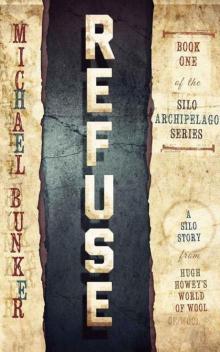 Refuse (The Silo Archipelago Series Book 1)
Refuse (The Silo Archipelago Series Book 1)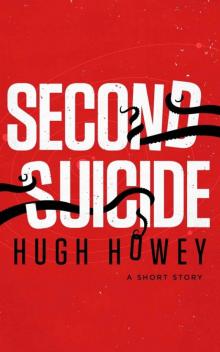 Second Suicide: A Short Story
Second Suicide: A Short Story Machine Learning: New and Collected Stories
Machine Learning: New and Collected Stories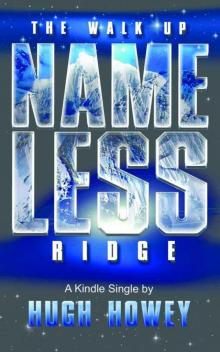 The Walk Up Nameless Ridge
The Walk Up Nameless Ridge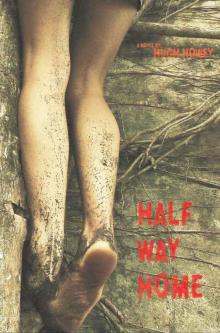 Half Way Home
Half Way Home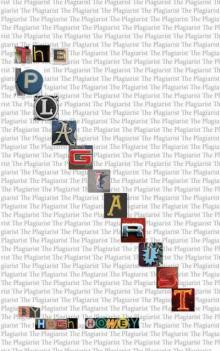 The Plagiarist
The Plagiarist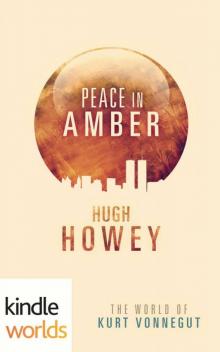 Peace in Amber
Peace in Amber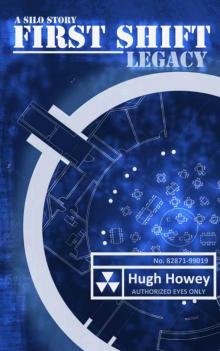 First Shift: Legacy
First Shift: Legacy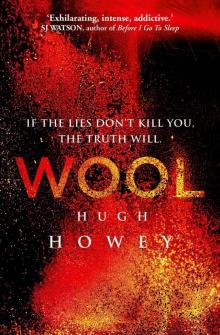 Wool
Wool Glitch
Glitch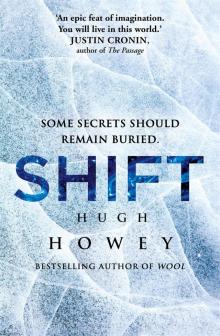 Shift
Shift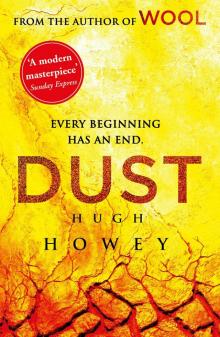 Dust
Dust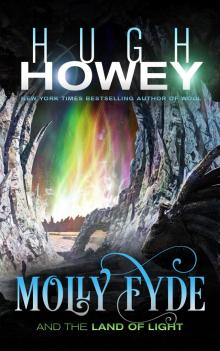 Molly Fyde and the Land of Light
Molly Fyde and the Land of Light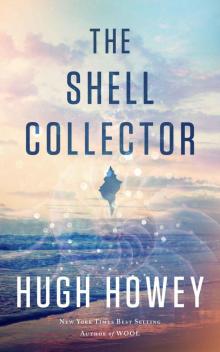 The Shell Collector
The Shell Collector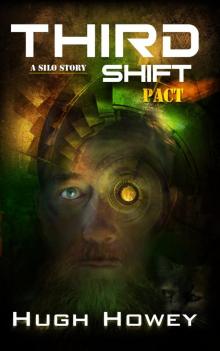 Third Shift: Pact
Third Shift: Pact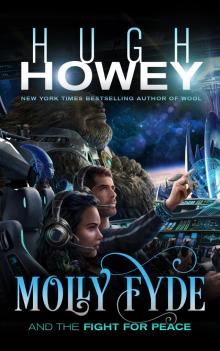 Molly Fyde and the Fight for Peace
Molly Fyde and the Fight for Peace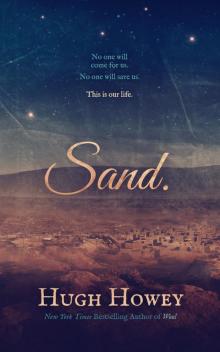 Sand Omnibus
Sand Omnibus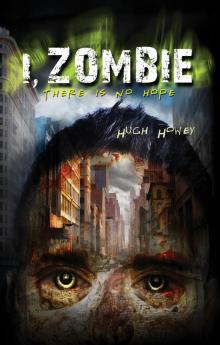 I, Zombie
I, Zombie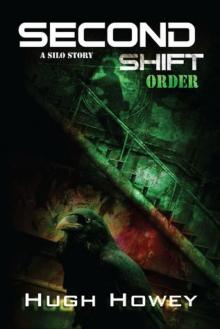 Second Shift: Order
Second Shift: Order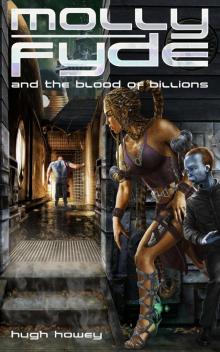 Molly Fyde and the Blood of Billions
Molly Fyde and the Blood of Billions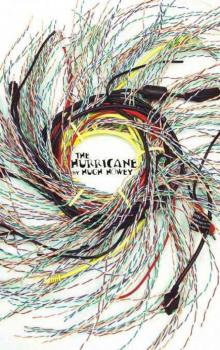 The Hurricane
The Hurricane The Box
The Box Glitch_A Short Story
Glitch_A Short Story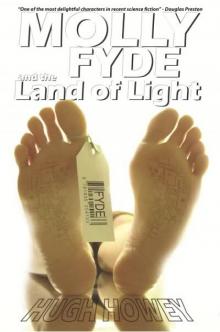 Molly Fyde and the Land of Light tbs-2
Molly Fyde and the Land of Light tbs-2 Machine Learning
Machine Learning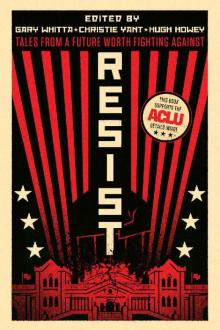 Resist
Resist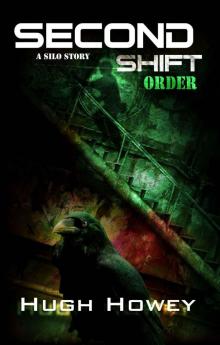 Second Shift - Order (Part 7 of the Silo Series) (Wool)
Second Shift - Order (Part 7 of the Silo Series) (Wool)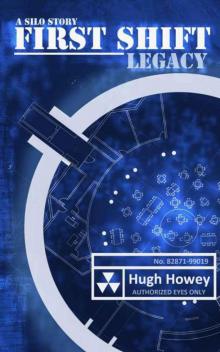 First Shift - Legacy s-1
First Shift - Legacy s-1 Stories on the Go: 101 Very Short Stories by 101 Authors
Stories on the Go: 101 Very Short Stories by 101 Authors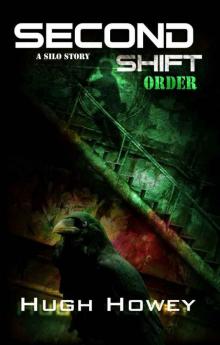 Second Shift - Order s-2
Second Shift - Order s-2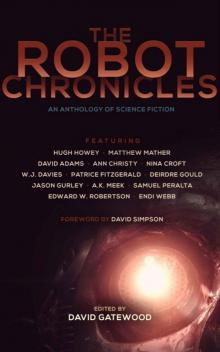 The Robot Chronicles
The Robot Chronicles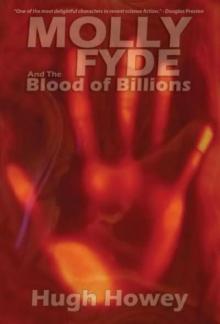 Molly Fyde and the Blood of Billions tbs-3
Molly Fyde and the Blood of Billions tbs-3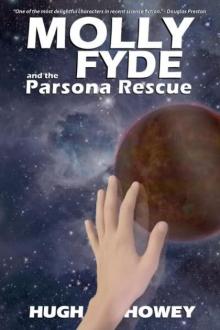 Molly Fyde and the Parsona Rescue tbs-1
Molly Fyde and the Parsona Rescue tbs-1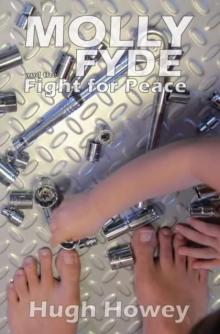 Molly Fyde and the Fight for Peace tbs-4
Molly Fyde and the Fight for Peace tbs-4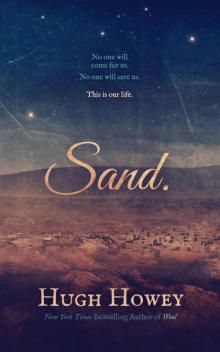 Sand
Sand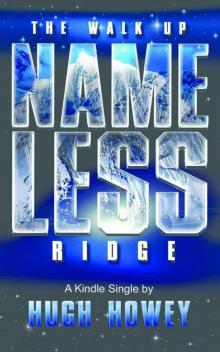 The Walk Up Nameless Ridge (Kindle Single)
The Walk Up Nameless Ridge (Kindle Single)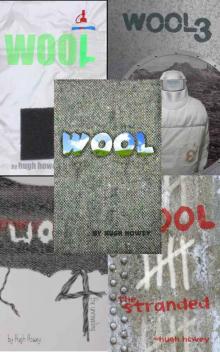 Wool Omnibus Edition (Wool 1 - 5)
Wool Omnibus Edition (Wool 1 - 5)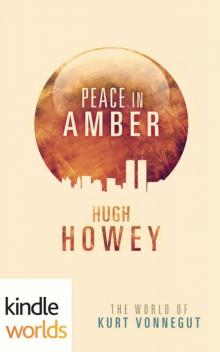 The World of Kurt Vonnegut: Peace in Amber
The World of Kurt Vonnegut: Peace in Amber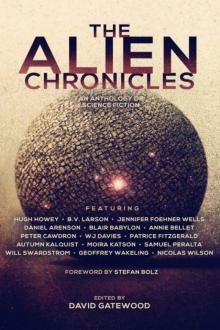 The Alien Chronicles
The Alien Chronicles Glitch: A Short Story (Kindle Single)
Glitch: A Short Story (Kindle Single)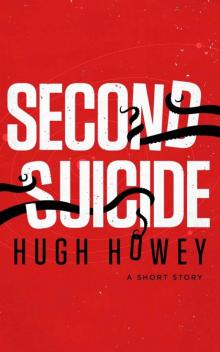 Second Suicide: A Short Story (Kindle Single)
Second Suicide: A Short Story (Kindle Single)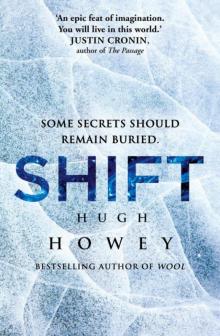 Shift (silo)
Shift (silo)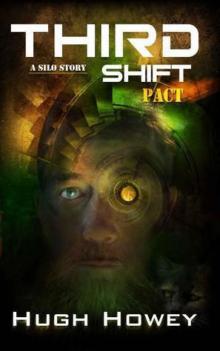 Third Shift - Pact
Third Shift - Pact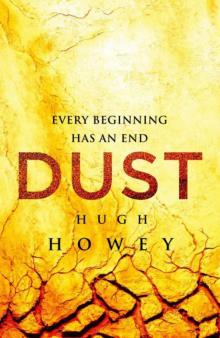 Dust s-9
Dust s-9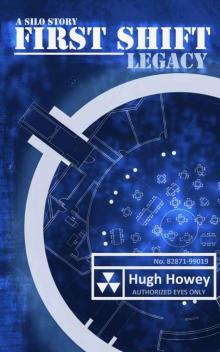 First Shift - Legacy (Part 6 of the Silo Series) (Wool)
First Shift - Legacy (Part 6 of the Silo Series) (Wool)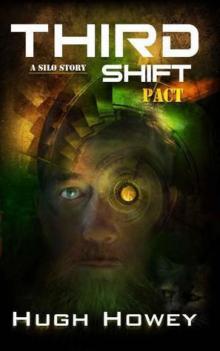 Third Shift - Pact s-3
Third Shift - Pact s-3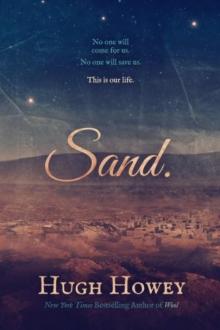 Sand: Omnibus Edition
Sand: Omnibus Edition The Box: A Short Story
The Box: A Short Story